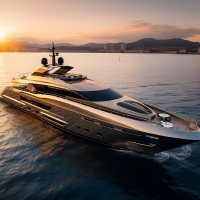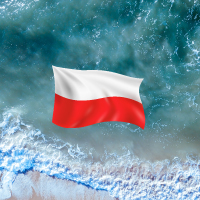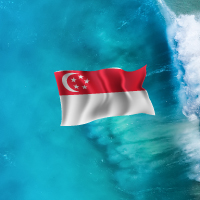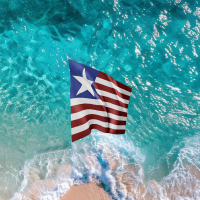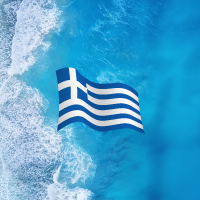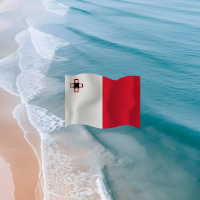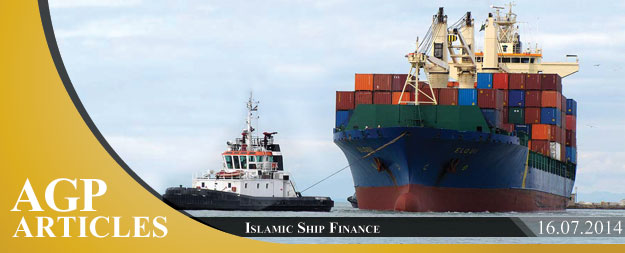
The objective of this Article is to give a general overview by way of comparison between conventional Western Ship Finance and Islamic Ship Finance.
Lets start with an outline of Western Ship Finance and then move on to the evolvement and development of Islamic Ship Finance.
As Islamic finance essentially operates like conventional banking but conforms to Islamic principles the points covered in the conventional ship finance section of this article are also highly applicable to Islamic Ship Finance.
Conventional Western ship finance has the following methods of finance:
- Standard Repayment Loans
- Margins Hit Rock Bottom
- Finance Leasing
- Bareboat hire purchase
- Hell and high water
- IPO’s
- Convertible and Exchangeable Bonds
- Move towards Convertible Bonds
- Shipping Funds
The availability of finance comes from:
- Conditions precedent for disbursement
- Insurances
- Asset Protection Clause
- Covenants
- Corporate Guarantee and restrictions on rights of Guarantor
There is also newbuilding finance:
- Pre-Delivery Finance
- Post-Delivery Finance
- Separation into pre and post-delivery finance
- Securities to be provided to the Bank
- Corporate Guarantee
- Refund Guarantee
- Specimen Refund Guarantee
Mortgagees criteria for approval of flag:
Most Mortgagees tend to apply the following criteria in approving a flag:
- Reputation
- Ease of enforcement, and the legal effect of the registration of the vessel and the mortgage
- Order of priorities within an enforcement (i.e. will other creditors rank ahead of the Bank?)
- Efficiency and universal recognition of mortgage (it is essential that the flag which the vessel flies is accepted worldwide or at least in countries where Banks normally try and do the foreclosure sale)
As a very good rule of thumb most Banks will accept all of the Vessels on the Paris M.O.U. White list but will reject all of the Vessels on the Paris M.O.U. Black list. However, this rule is not set in stone.
It does not mean that all the flags under the Black list are under no circumstances acceptable. For example, although rated a medium to high risk flag on the Black list, the St. Vincent and Grenadines flag is widely accepted. Conversely, there are a number of flags appearing on the Grey list which on the whole are not acceptable namely Belize, Iran and the Russian Federation.
The evolvement of Islamic Ship finance:
With the continuing growth of wealth throughout the Muslim states there has evolved a pressing demand for Muslims to invest their wealth without breaching the strictures of Islam against Riba (‘interest’).
The resultant development of Islamic banking within the Islamic financial world has led to a growing pool of “Islamic” money looking for a home in investments.
Shipping, which has been booming over the last few years, is an ideal outlet for these investments although any investment in shipping must be consistent with the values of Islamic Faith.
What are these values and how can they be accommodated within the world of Shipping and Ship Finance?
An Islamic Economy is an economy that is regulated by a set of rules based on “Shari’ah” (Islamic Jurisprudence) which represent the set of guidelines outlined in the Quraan.
As we know, Islam is a system of beliefs, justice, equity, fairness and morality. These values underpin the entire Islamic way of life and must be accommodated within commerce.
Undoubtedly, the biggest difference between Western and Islamic Finance is the fact that Islamic Banks cannot charge interest (“Riba”). The charging of interest is the most fundamental concept upon which Western Banks operate and make money.
OTHER KEY PRINCIPLES OF SHARI’AH
As well as the key principle of “Riba” the following principles must also be accommodated:
- No speculation (“Maisis”); this precludes the entry into derivative transactions. Many standard Shipping Loan Agreements will include currency swap options; this is not allowed under Islamic Finance
- Prohibited Investments involving products such as pork or alcohol; this would preclude any trade whereby any ships financed would be carrying such products.
- Profit cannot be guaranteed and the Islamic financial institution must assume at least part of the risk of a given transaction. This reflects a fundamental concept of risk sharing so that the Bank, the supplier of funds, becomes an investor rather than a creditor and shares business risks in return for a share of the profits. Nevertheless, many of the securities that were covered earlier would still be utilized in Islamic Finance to guard against negligence or breach of contract by the parties to the transaction.
- Uncertainty: Gharar- this prohibits speculative behaviour or uncertain transactions which makes conventional ship insurance arrangements problematic.
How do Islamic Ship Finance Banks circumvent these apparent obstacles?
Financing options:
Islamic Ship Finance Institutions have developed a wide range of Finance Products which allows them to uphold the principles previously outlined and at the same time gives ship owners and investors a variety of attractive finance options:
Murabaha (cost-plus financing) this is equivalent to the standard “Western” loan repayment finance outlined earlier. The Ship Finance Institution will buy a vessel from the existing Shipowner directly on request from the Bank’s customer and will then resell to the customer at a selling price higher than the purchase price paid to the original shipowner.
The customer then pays the consideration to the goods purchased on an installment basis (“deferred payment”) as per an agreed repayment schedule. This arrangement may be secured.
This method of finance does not contravene Shari’ah law as by taking title to the ship the bank is assuming a risk which entitles it to profit. The benefit to the customer is that it is not affected by fluctuations in base lending rates, which simplifies cost management.
Client cannot take asset risk by indemnifying the Islamic bank or by taking out insurance
IJARA WA IQTINA (FINANCE LEASE)
This is a leasing structure coupled with a right available to the lessee to purchase the ship at the end of the lease period (Bay’ al-Wafa).
The lessee will agree to make payments into an Islamic Investment account (with any profits being for the benefit of the lessee) to be used in or towards financing the ultimate purchase of the vessel.
SUKUK (BOND ISSUE)
Sukuk is equivalent to the convertible and exchangeable bonds already discussed. An SPV will purchase the ship and charter it to the ultimate purchaser under back to back arrangements and will issue Sukuk Certificates under a Note issuance facility entitling the holders of the Sukuk to a pro rata ownership of the asset and a right to receive a proportion of the hire payments
ISTISNA’A (NEW BUILDING FINANCE)
This has been used for the advance funding of ships under construction. The Islamic Ship Finance Institution will fund the Ship Yard during the construction of the Vessel and will acquire title to the Vessel on completion and either immediately pass title to the customer (e.g. if the customer wants to sell the Vessel to a 3rd party) or agreed deferred payments under a murabahah scheme (post delivery finance) or lease the asset to the customer under an “ijarawaiqtina”.
THE ROLE OF THE SHARI’AH ADVISOR
Notwithstanding the existence and common use of the finance models outlined previously, Shari’ah is derived from various sources and is open to different interpretations. This being the case many Ship Finance Institutions have a religious board (Shari’ah) advisor.
It is always essential to obtain the approval of the Shari’ah advisor on the forms of the financing contracts in order to ensure compliance with the principles of Islamic Shari’ah.
This feature of Islamic Finance could potentially cause difficulties and uncertainty as there may be conflicting opinions from Shari’ah advisors from different Islamic Banks or between Shari’ahcounsel in different countries.
Additional regulations:
- Additionally Islamic Banks are submitted like their conventional counterparts to:
- Supervision by their Central Bank
- General prudential regulations
- Anti-money laundering law regulations
- Auditing by the Accounting and Auditing Organization for Islamic Financial Institutions (AAOIPI)
ISLAMIC SHIPPING FUNDS
The concept of a mutual fund is understood and well recognised from an Islamic perspective with the idea of a “partnership” between the financial institution and the investors, whereby the institution will exercise control over and invest a pool of funds on behalf of such investors. As with Mudarabah there is no guaranteed return and any profits are on a proportional basis. The investor is not liable for losses beyond the amount of capital initially subscribed.
In structuring these transactions, conventional “mutual fund” documentation has been modified for use in Islamic Funds. For example the Company’s prospectus and Memorandum of Association prevent the Fund Company from charging interest or investing in interest-bearing equities in ships which will transport prohibited products.
Furthermore, provision will be made for the election of a Shari’ah committee whose role will be to confirm whether or not an investment that has been approved for business reasons is acceptable from an Islamic perspective.





